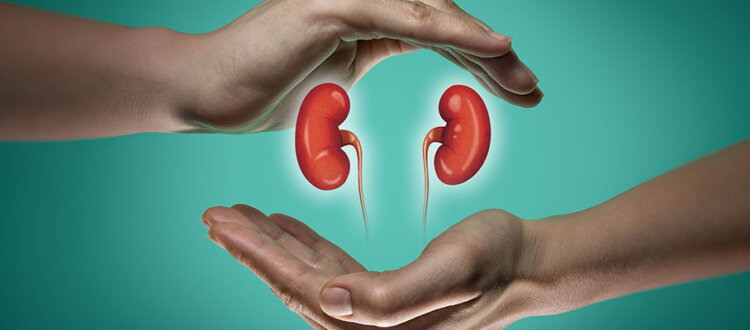Our kidneys play a pivotal role in filtering waste and maintaining fluid balance in the body. However, kidney health is frequently disregarded until problems arise. Because of this, realizing how important food choices and lifestyle decisions are can have a big impact on kidney health and general wellbeing.
Importance of diet for kidney patients-
Particularly for those who already have kidney diseases, diet is very important in maintaining kidney health. For kidney patients to maintain optimal function and slow the progression of their disease, a balanced diet high in quality protein and low in sodium, phosphorus, and potassium is crucial, according to Dr. Partha Karmakar, consultant and coordinator, nephrology and dialysis unit at Narayana Hospital, Howrah, and NH RN Tagore Hospital.
Kidney health can be promoted by including foods like fresh fruits, vegetables, complete grains, and lean proteins.
Hydration- Proper hydration is crucial for kidney function as it helps flush toxins from the body and prevents the formation of kidney stones. Dr Rajesh Aggarwal, chief and senior consultant, nephrology, Sri Balaji Action Medical Institute, advised adequate hydration, achieved through regular water intake. According to him, it supports optimal kidney function and reduces the risk of urinary tract infections. “Aim to drink at least eight glasses of water per day, adjusting intake based on activity level and environmental factors,” said Dr Aggarwal.
Avoid Over-the-Counter medications- Over-the-counter (OTC) medications can pose risks to kidney health, particularly when used indiscriminately. “Opt for safer alternatives like paracetamol or crocin for pain relief, and always consult with a healthcare professional before taking any medication. Avoiding OTC medications, especially non-steroidal anti-inflammatory drugs (NSAIDs), can help prevent kidney damage and preserve kidney function over time,” Dr Aggarwal added.
Manage diabetes- Diabetes remains a significant risk factor for kidney disease, highlighting the importance of diabetes management in kidney health. Dr Sudeep Singh Sachdev, director and senior consultant, nephrology, Narayana Hospital Gurugram said, “Controlling blood sugar levels through medication, diet, and exercise is paramount in preventing kidney complications associated with diabetes.”
Maintaining a diabetic-friendly diet and routine blood sugar monitoring can significantly decrease the chance of kidney disease developing further.
Comprehensive guidelines for preserving kidney health, according to Dr. Singh Sachdev, place a strong emphasis on the minimal use of painkillers, especially avoiding those that can make kidney problems worse.
Additionally, monitoring blood pressure and maintaining it within the normal range is paramount, as elevated blood pressure can directly impact kidney function.
Regular kidney function tests, especially for high-risk individuals such as those with diabetes, hypertension, or obesity, are essential for early detection and intervention. “Any indication of protein in the urine warrants immediate attention from a nephrologist to prevent further kidney damage,” said Dr Singh Sachdev.
It is highly recommended that smokers give up because smoking not only causes direct damage to the kidneys but also aggravates diseases like diabetes and hypertension that are harmful to kidney health. It’s critical to maintain a healthy weight through food, which includes cutting back on sodium and avoiding saturated fats and managing blood sugar levels. Dr. Karmakar continued, “hydration, attained through sufficient water intake, plays a fundamental role in kidney function by aiding in the elimination of toxins.”
Source:IE







 Finance
Finance







